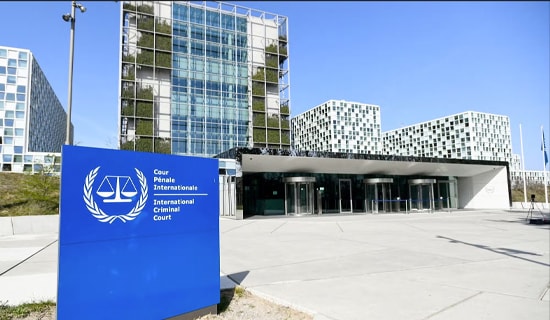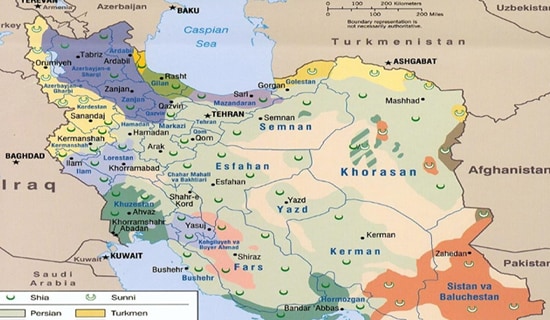The following are official reactions to the signing of the U.S. bill, which includes a new round of sanctions against Russia, by President Donald Trump.[1] The common thread linking most of the comments is the downgrading of Donald Trump who had displayed his weakness vis à vis Congress by reluctantly signing the bill. Russian PM Dmitry Medvedev noted: "The U.S. establishment fully outwitted Trump."
Rosneft CEO Sechin: The Sanctions Are Starting To Backfire
Igor Sechin, chief executive officer of Russia's largest oil producer Rosneft that is intimately tied to the Russian government said: "I regret that Exxon was hurt– it was fined by 2 million dollars for communicating with us. It means that sanctions have begun working against those who introduced them. This is positive... Of course, this bill is wrong, and they do understand that by themselves. Sometimes it seems to me, that the harshest sanctions are aimed at Trump and not at us."
(Rbc.ru, August 3, 2017)

Igor Sechin (Source: Sputniknews.com)
Russia's MFA: 'This Is A Very Short-Sighted And Even Dangerous Policy'
Commenting on the signing on the U.S. bill coming into force, the Russian Foreign Ministry stated:
"It is regrettable that the law on sanctions against Russia has come into effect in the United States. Its very title – 'Countering America's Adversaries Through Sanctions Act' – speaks for itself. Its initiators are trying to impress on the U.S. public a certain image of our country. This is a very short-sighted and even dangerous policy fraught with undermining stability for which Moscow and Washington bear special responsibility.
"The Russian Foreign Ministry expressed the Russian position on U.S. actions, including this bill, in its statement on July 28. We have also already demonstrated that we are not going to leave unanswered hostile actions, including the expulsion of our diplomats by the U.S. authorities and the seizure of diplomatic property. Naturally, we also reserve the right to other countermeasures.
"It is high time the American fans of sanctions, which have plunged the United States into Russophobic hysteria, got rid of their illusions and realized that no threats or attempts to exert pressure will compel Russia to change its course or sacrifice its national interests.
"Trading barbs is not our choice. We are open for cooperation with the United States in the spheres where we consider it useful for ourselves and international security, including settlement of regional conflicts. However, productive cooperation is only possible if Washington politicians overcome their delusions and stop perceiving the world around them through the prism of 'American exceptionalism' that is distorting reality."
(Mid.ru, August 2, 2017)
PM Medvedev: 'The U.S. Establishment Completely Outwitted Trump'

Russian PM Medvedev (Source: Facebook.com/Dmitry.Medvedev)
Following the signing of the sanctions bill by Trump, Russian Prime-Minister Dmitry Medvedev wrote a post in his Facebook account: "The signing of the new anti-Russia sanctions law by the U.S. president will have a few consequences. First, it ends hopes for improving our relations with the new U.S. administration. Second, it is a declaration of a full-fledged trade war on Russia. Third, the Trump administration has shown its total impotence by handing over executive power to Congress in the most humiliating way. This changes the power balance in U.S. political circles.
"What does it mean for them? The U.S. establishment fully outwitted Trump; the President is not happy about the new sanctions, yet he could not but sign the bill. The issue of new sanctions came about, primarily, as another way to knock Trump down a peg. New steps are to come, and they will ultimately aim to remove him from power. A nonsystem player has to be removed. Meanwhile, the interests of the U.S. business community are all but ignored, with politics chosen over a pragmatic approach. Anti-Russian hysteria has become a key part of both U.S. foreign policy (which has occurred many times) and domestic policy (which is a novelty).
"The sanctions regime has been codified and will remain in effect for decades unless a miracle happens. This legislation is going to be harsher than the Jackson-Vanik amendment as it is overarching and cannot be lifted by a special presidential order without Congress' approval. Thus, relations between Russia and the United States are going to be extremely tense regardless of Congress’ makeup and regardless of who is president. Lengthy arguments in international bodies and courts are ahead, as well as rising international tensions and refusal to settle major international issues.
"What does it mean for us? We will steadily continue our work on developing the economy and social sector, take efforts to substitute imports, and solve major national tasks, relying mostly on ourselves. We have learned to do so in the past few years, in conditions of almost closed financial markets as well as foreign investors' and creditors' fear of investing in Russia upon penalty of sanctions against third parties and countries. To some extent, this has even been to our advantage, although sanctions are meaningless overall. We will cope."
(Facebook.com/Dmitry.Medvedev, August 2, 2017)
Senator Klintsevich: 'Trump Admitted His Failure'
Senator Franz Klintsevich, first Deputy Chairman of Russia's Federation Council Defense and Security Committee, said: "By signing this bill, which he himself criticized, Trump acknowledged his defeat. In a certain sense, this bill reflects the current balance of forces between the U.S. president and the Congress.... It seems that for the foreseeable future Russian-American relations will not change for the better. Nevertheless, there remains a sphere in which cooperation between our countries –despite all the differences in approach – is definitely essential. This sphere is global security, the prevention of any possibility that a global war will occur."
(Ria.ru, August 2, 2017)
Senator Kosachev: 'The News Is Mainly That Trump Has Caved In'
Senator Konstantin Kosachev, who chairs the Federation Council's foreign relations committee, noted: "If there are retaliatory U.S. measures [regarding the expelling of diplomats] – we will also retaliate. We are not getting ahead of ourselves, not initiating anything, but we will take tough action and mirror [the U.S. actions]."
(Ria.ru, July 31, 2017)
He then added: "If the U.S. expands its groundless and senseless sanctions to mutual cooperation with Russia on the 'burning contemporary issues– fighting terror, WMD threat reduction, cross-border crime activity and illegal immigration – this will be a fatal mistake by the current U.S. leadership, which is becoming more irresponsible and unpredictable in its actions."
(Ria.ru, August 1, 2017)
Later Kosachev wrote in his Facebook account: "The news is mainly that Trump has caved in. Out of three options - to start confrontation with the Congress (to veto the bill), to bow out from its signing (I do not agree but I can’t do anything) and to sign it - the president has chosen the third variant… The United States does not leave a chance for constructive cooperation with Russia as the most important partner in solving central problems of contemporary global development. From now on and for years (decades?) to come, this cooperation will inevitably be selective, whether it’s from the American, or the Russian side."
(Tass.com, August 2, 2017)
Senator Ozerov: U.S. Should Continue To Cooperate With Russia In Syria
Senator Viktor Ozerov, former chair of Defense and Security committee of the Federation Council, underlined the spheres of Russia-U.S. mutual interests. The senator said that he hopes cooperation on Syria won't be damaged as well as space cooperation, where American investments are valuable to Russia.
(Ria.ru, July 31, 2017)

(Source: Twitter.com/natomission_ru)
Communist Leader Zuganov: the U.S. Sanctions Were A Cold Shower For Russians Lawmakers Who Had Hoped For A Reset
Communist Party leader Gennady Zuganov stated: "The new American sanctions finally dashed the hopes of those in the highest echelons of power, who dreamed of embedding themselves in the world's oligarchy as a junior partner...The Communist Party condemns the American sanctions and considers them to be a brutal interference in the internal matters of our country, while they [the Americans] display a total disdain for Russia's interests and a firm intention of suffocating their historic opponent. Notwithstanding, we are convinced that the hostile U.S. actions should be a sobering cold shower for those, who still vainly hope for a 'reset' in the relations with the U.S."
Russian Ambassador To NATO Grushko: The Bill Is A Blow To Transatlantic Ties
Russia's Permanent Representative to NATO Alexander Grushko commented: "What has been done by the United States, by the Congress in particular [a bill toughening the anti-Russian sanctions], is not only a blow on international law, on the very fundamentals of the present-day system of international relations, on the norms of the World Trade Organization (WTO), it is a serious blow on the transatlantic ties as well."
(Tass.com, July 31, 2017)
Former Russian FM Ivanov: 'Russia And The U.S. Have No Choice But To Look For Opportunities For Cooperation'
Former Russian FM and President of the Russian International Affairs Council Igor Ivanov called on the U.S. and Russia to identify common grounds for cooperation under the new circumstances. Ivanov wrote:
"… Sanctions are, of course, no good! No good at all! It doesn’t matter what they might say, sanctions have never done anyone any good. Still, there is no reason to fall into despair. Ultimately, globalism dictates the rules for everyone – both for those who impose the sanctions and for those who are affected by them. The world is full of problems that require extensive international cooperation to deal with, and their number is only growing. "This is why there are more than enough areas in which Russia and the United States can, and should, based on their objective interests, develop a system of cooperation. Right now, it is imperative that we identify these areas of cooperation quickly so that we do not miss opportunities that might present themselves, however limited they may be…
"Russia and the United States are not simply the largest nuclear superpowers. Objective circumstances have aligned themselves in such a way that Russia and the United States are, more than any other countries, capable of steering the world towards confrontation or cooperation. The fact that Washington continues to impose sanctions against Russia, and that Russia invariably takes retaliatory steps, gives cause to believe that the two countries have embarked upon a long separation, and will be content in the near future to plot against each other. If we start down this path, then the chickens will come home to roost very quickly. Mark my words.
"Thus, paradoxical as it may sound against the backdrop of the openly hostile and short-sighted actions of the American side, Russia and the United States have no choice but to look for opportunities for cooperation. During their meeting in Hamburg, President of the Russian Federation Vladimir Putin and President of the United States Donald Trump spoke in favor of cooperation. They identified very specific areas in which cooperation could take place, namely Syria, Ukraine and in the field of cyber-security (which is of particular relevance right now). The two sides need to expend a great amount of effort in order for these agreements to be implemented. Only then will trust gradually start to be restored, and only then will the sanctions fade away."
(Russiacouncil.ru, August 3, 2017)
[1] Law H.R. 3364, the "Countering America's Adversaries Through Sanctions Act."
See MEMRI Special Dispatch No. 7032, Russia Reacts To The New Round Of U.S. Sanctions – Part I, July 31, 2017.
See MEMRI Special Dispatch No. 7040, Russia Reacts To The New Round Of U.S. Sanctions – Part II, August 4, 2017.
See MEMRI Special Dispatch No. 7037, Russia-Government Funded Think Tank: The Hidden Target Of The New Round Of U.S. Sanctions Is To Undermine The German Economy, August 3, 2017.
See MEMRI Special Dispatch No. 7038, Russia This Week – August 1-5, 2017, August 3, 2017.








